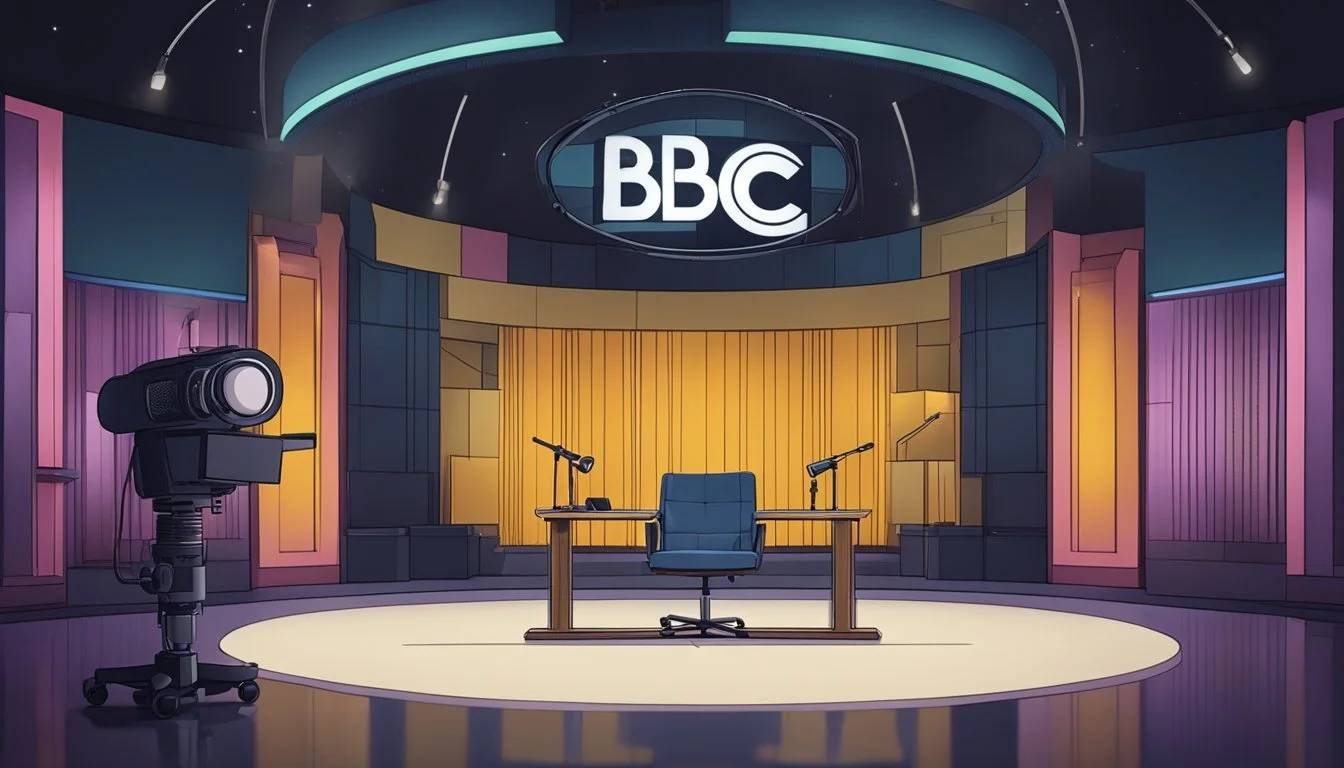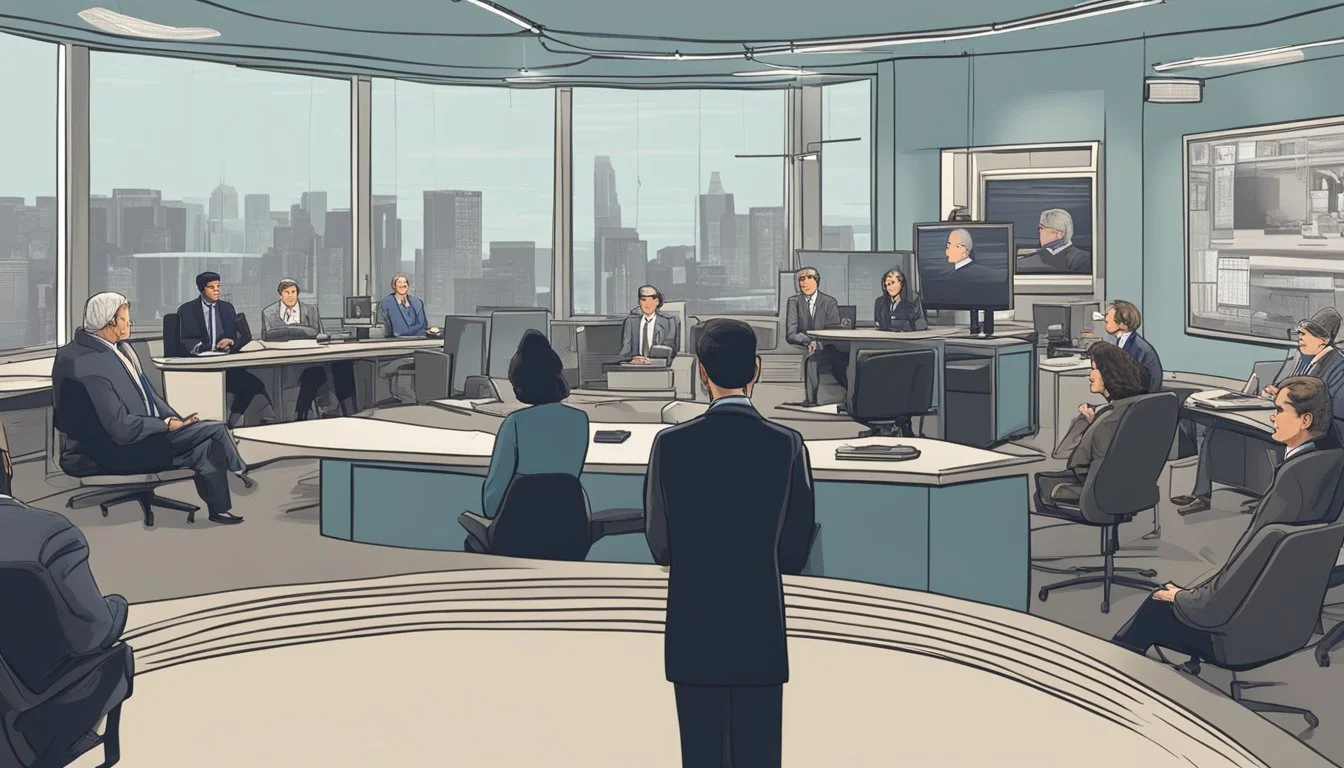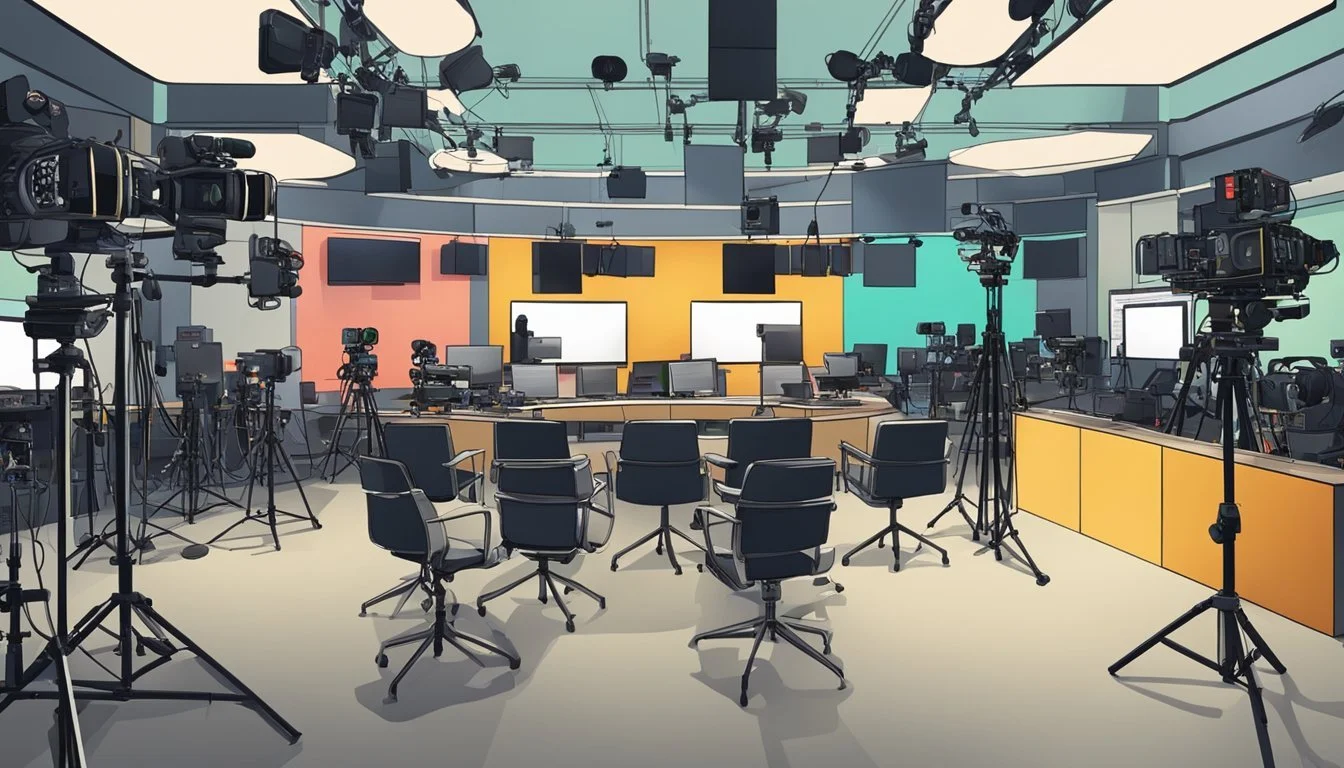Martin Bashir: The Diana Interview That Haunted the BBC
Fallout and Consequences Explored
In November 1995, Martin Bashir's interview with Princess Diana for the BBC's Panorama program sent shockwaves through the British monarchy and captivated viewers worldwide. The groundbreaking televised conversation revealed intimate details of Diana's turbulent marriage to Prince Charles and her struggles within the royal family.
The interview, watched by over 23 million people in the UK alone, marked a turning point in Diana's public image and her relationship with the press. Bashir secured exclusive access to the Princess through unconventional means, which later came under intense scrutiny and led to a major controversy for the BBC.
The fallout from this landmark interview continued long after Diana's tragic death in 1997. Questions about Bashir's journalistic ethics and the BBC's handling of the situation persisted for decades, ultimately resulting in an independent investigation that uncovered deceitful practices used to obtain the interview.
Background of the Interview
The 1995 Panorama interview with Princess Diana marked a pivotal moment in British media and royal history. It brought together a rising BBC journalist, a princess seeking to share her story, and a prestigious current affairs program.
Rise of Martin Bashir
Martin Bashir joined the BBC in 1986 and quickly made a name for himself as an investigative journalist. He gained recognition for his work on programs like Public Eye and Panorama. Bashir's tenacity and ability to secure high-profile interviews caught the attention of BBC executives.
In 1995, Bashir set his sights on the most sought-after interview subject in the world: Princess Diana. His persistence and persuasive tactics ultimately led to the groundbreaking sit-down with the Princess of Wales.
Princess Diana's Media Relationship
Diana had a complex relationship with the media throughout her time in the royal spotlight. She was both pursued by photographers and adept at using the press to shape her public image. By 1995, Diana was separated from Prince Charles and eager to tell her side of the story.
The princess had grown frustrated with the royal family's attempts to control her narrative. She saw the Panorama interview as an opportunity to speak directly to the public without interference from Buckingham Palace.
Panorama's Reputation
Panorama, the BBC's flagship current affairs program, had a long-standing reputation for hard-hitting journalism and exclusive interviews. Launched in 1953, it had covered major national and international stories for decades.
The program's credibility and wide viewership made it an ideal platform for Diana's revelations. Securing such a high-profile interview was a coup for Panorama and promised to deliver record-breaking ratings for the BBC.
Panorama's editorial team, led by Steve Hewlett, worked closely with Bashir to prepare for the historic broadcast. The interview's potential impact on the monarchy and public opinion was not lost on the BBC leadership.
The Interview: Preparation and Execution
Martin Bashir's interview with Princess Diana in 1995 became one of the most controversial moments in BBC history. The process involved deceptive tactics, meticulous planning, and resulted in explosive revelations that shook the British monarchy.
Securing the Interview
Martin Bashir used unethical methods to gain access to Princess Diana. He presented fake bank statements to Earl Spencer, Diana's brother, suggesting that royal staff members were being paid to spy on the princess. This deception played a crucial role in convincing Diana to agree to the interview.
Bashir also exploited Diana's fears and paranoia about being watched. He falsely claimed that her private secretary was receiving money from the security services. These fabricated documents and claims were instrumental in securing Diana's trust and cooperation.
The BBC failed to properly investigate Bashir's methods at the time, despite concerns raised by some staff members.
Execution of the Interview
The interview took place in secret at Kensington Palace on November 5, 1995. A small BBC crew set up equipment in Diana's sitting room, maintaining strict confidentiality to prevent leaks.
Bashir conducted the interview over several hours, encouraging Diana to speak openly about her life in the royal family. The princess appeared comfortable and composed throughout the conversation.
The recording was kept under tight security. Only a handful of BBC executives were aware of its contents before broadcast. This level of secrecy added to the interview's impact when it aired.
Content Overview
Diana made several shocking revelations during the interview:
She confirmed her affair with James Hewitt
She spoke about Charles's relationship with Camilla Parker Bowles, famously saying, "There were three of us in this marriage"
She questioned Charles's suitability to be king
She discussed her struggles with bulimia and self-harm
The princess also addressed the pressures of royal life and media scrutiny. She expressed her desire to be a "queen of people's hearts" rather than Queen of England.
These candid admissions sent shockwaves through the royal family and the British public. The interview attracted over 20 million viewers when it aired on November 20, 1995.
Aftermath and Impact
The 1995 Panorama interview with Princess Diana sent shockwaves through the British monarchy and media landscape. It had far-reaching consequences for the royal family and the BBC.
Immediate Reception and Reaction
The interview drew a massive audience of 23 million viewers in the UK. Diana's candid revelations about her marriage, infidelity, and struggles with mental health captivated the public. Many praised her honesty and vulnerability.
The royal family was stunned by Diana's disclosures. Queen Elizabeth II reportedly urged Charles and Diana to divorce quickly after the broadcast. The interview accelerated the formal end of their marriage in 1996.
Media reaction was intense. British tabloids ran sensational headlines for weeks. The BBC faced criticism for keeping the interview secret from Buckingham Palace beforehand.
Effect on Royal Family Dynamics
Diana's interview strained her relationship with the royal family. She was seen as breaking protocol by airing private matters publicly. The Queen was displeased with Diana's actions.
It widened the rift between Diana and Prince Charles. Their divorce negotiations became more contentious in the aftermath. Diana lost her "Her Royal Highness" title as part of the settlement.
The interview raised questions about the monarchy's future. It damaged public perception of Prince Charles and boosted sympathy for Diana. This shift in public opinion persisted even after Diana's death in 1997.
William and Harry were deeply affected by their mother's revelations. The interview added to the media scrutiny they faced as young princes.
Controversy and Allegations
Martin Bashir's 1995 interview with Princess Diana sparked intense debate and serious accusations. Questions arose about the methods used to secure the groundbreaking televised conversation.
Accusations of Deceit
Martin Bashir faced allegations of using deceptive tactics to gain Princess Diana's trust. Critics claimed he exploited her vulnerabilities to obtain the interview. The BBC launched an internal investigation in 1996 but initially cleared Bashir of wrongdoing.
However, doubts persisted about the thoroughness of this inquiry. Diana's brother, Earl Spencer, later provided evidence suggesting Bashir had shown him forged bank statements. These documents allegedly implied royal staff were being paid to spy on Diana.
Fake Documents Scandal
The forged bank statements became a central focus of the controversy. These fabricated documents purportedly showed payments from News International and a mysterious offshore company to a former employee of Earl Spencer.
Bashir allegedly used these fake statements to convince Earl Spencer that people close to Diana were selling information about her. This deception reportedly played a crucial role in securing Earl Spencer's introduction to Diana, paving the way for the interview.
Public Response to Allegations
The public reacted with shock and outrage as details of the allegations emerged. Many felt the interview's legacy was tainted by the accusations of deceit. Calls grew for a more thorough investigation into Bashir's methods and the BBC's handling of the situation.
In 2020, the BBC commissioned an independent inquiry led by Lord Dyson. This investigation aimed to examine the circumstances surrounding the interview and address long-standing questions about its ethical implications.
The controversy reignited debates about journalistic ethics and the responsibility of media organizations. It also raised concerns about the potential exploitation of vulnerable public figures in pursuit of high-profile interviews.
Investigations and Consequences
The Diana interview scandal led to multiple investigations and far-reaching consequences for the BBC and journalism ethics. Key findings exposed deceptive practices and institutional failures.
The Dyson Report
Lord Dyson's independent inquiry published damning conclusions in May 2021. The report found Martin Bashir used deceitful methods to secure the interview, including forged bank statements. It criticized BBC management for inadequate scrutiny of Bashir's conduct and covering up facts about how he obtained the interview.
The investigation revealed the BBC fell short of its high standards of integrity and transparency. Lord Dyson's findings highlighted serious breaches of BBC guidelines and a failure of leadership.
BBC's Response and Apologies
The BBC issued a full and unconditional apology following the Dyson Report. Director-General Tim Davie acknowledged the "clear failings" identified. The broadcaster accepted the report's findings in full and expressed deep regret for the events surrounding the interview.
Prince William and Prince Harry both released statements criticizing the BBC's practices. The royal family's trust in the corporation was severely damaged. As a result, the BBC returned all awards received for the Panorama interview.
Impact on Journalism
The scandal prompted a wider examination of journalistic ethics and practices. It raised questions about the lengths reporters go to secure high-profile interviews. Many news organizations reviewed their own guidelines and ethical standards in response.
The affair damaged public trust in journalism, particularly at the BBC. It highlighted the need for robust editorial oversight and accountability in media organizations. The incident serves as a cautionary tale about the consequences of compromising journalistic integrity for a scoop.
Later Developments and Current Perspectives
The Diana interview's impact continues to reverberate through British media and society. New revelations have reshaped public understanding of the events surrounding the controversial Panorama broadcast.
Reevaluation of Historical Narrative
In 2020, the BBC launched an independent inquiry led by Lord Dyson into the circumstances of the 1995 interview. The investigation uncovered damning evidence against Martin Bashir. It revealed he had used forged bank statements to gain access to Princess Diana through her brother, Earl Spencer.
The Dyson Report, published in 2021, concluded that Bashir had acted deceitfully and breached BBC editorial guidelines. It also criticized the BBC's internal investigation in 1996 as "woefully ineffective."
These findings prompted a major reassessment of the interview's legacy. The BBC returned the BAFTA award it had received for the Panorama program. Prince William and Prince Harry both issued statements condemning the deceptive practices used to secure the interview.
Media's Role and Ethical Reflection
The scandal sparked intense debate about journalistic ethics and the responsibilities of media organizations. Many questioned how Bashir's actions went unchecked for so long.
The BBC faced significant criticism for its handling of the affair. Then-director general Tony Hall resigned from his position as chairman of the National Gallery due to his involvement in the initial flawed investigation.
Media outlets and journalism schools have used the case as a cautionary tale. It has become a prime example of the dangers of prioritizing scoops over ethical considerations.
The incident has led to calls for stronger safeguards against deceptive practices in journalism. Some have advocated for more rigorous fact-checking and source verification processes.
Public Opinion and Diana's Legacy
The revelations about the interview's origins have reignited public interest in Princess Diana's story. Many view her participation in a new light, seeing her as a victim of media manipulation.
Diana's sons have been vocal in connecting the interview to the breakdown of their parents' marriage and their mother's isolation. This has further shaped public perception of the royal family's treatment of Diana.
Despite the controversy, the interview remains a defining moment in royal history. Diana's candid statements about her marriage and struggles continue to resonate with many people.
The affair has also reinforced Diana's image as a figure caught between powerful institutions. It has added another layer to her complex legacy as both a royal insider and an outsider within the monarchy.




